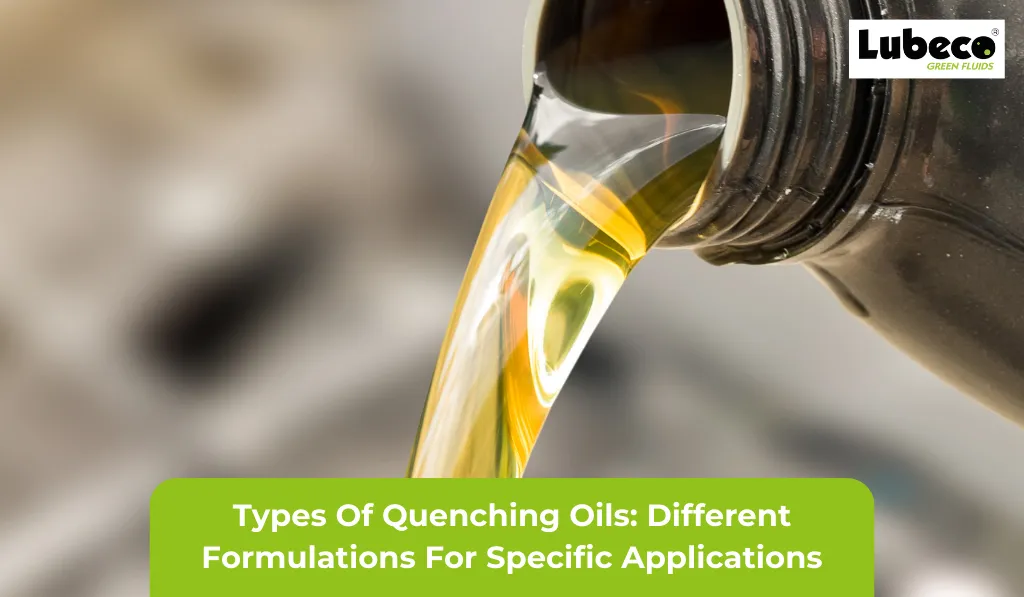Introduction
In the heat treatment of metals, where regulated cooling is necessary to obtain desirable material qualities, quenching oils play a critical role. In the procedure, metal components are heated to predetermined temperatures and then quickly cooled with quenching fluids. Different quenching oils are produced to suit different uses and metal kinds, therefore not all quenching oils are made equal. In this essay, we shall examine the wide range of quenching oils and their various industrial applications.
Importance of Quenching Oils
Metals’ mechanical characteristics can be improved through heat treatment procedures like quenching. Quenching metals properly can increase their hardness, strength, and durability. Metals can quickly cool through a media like quenching oils without deforming or breaking. It is important to choose the proper quenching oil because a poor choice could lead to uneven cooling, deformation, or even failure of the metal component.
Types of Quenching Oils
- Mineral Quenching Oils: These are traditional quenching oils derived from petroleum. They are known for their excellent heat transfer properties and are used for a wide range of applications. However, they have limitations in terms of oxidation stability and cooling rates for specific materials.
- Polymer Quenching Oils: Polymer quenching oils are formulated by adding polymers to mineral oils. They offer improved oxidation stability and reduced flammability compared to traditional mineral oils. Polymer quenching oils are often used for hardening steel components.
- Water Quenching: Water is the simplest and fastest quenching medium. It provides rapid cooling, but its intense cooling rate can lead to high stresses and potential cracking, making it suitable for specific applications and certain steel types.
- Polymer-Water Quenching: This involves using a mixture of water and a water-soluble polymer. The polymer reduces the severity of quenching and minimizes the risk of cracking, making it suitable for high-hardenability steels.
- Aqueous Polymer Quenchants: These are water-based quenching solutions containing additives to improve cooling performance and reduce the likelihood of distortion or cracking. They are often used for complex-shaped components.
- Vegetable Oil Quenching: Derived from renewable sources, vegetable oils are becoming popular due to their biodegradability and reduced environmental impact. They offer moderate cooling rates and are suitable for applications where controlled cooling is required.
Choosing the Right Quenching Oil
Selecting the appropriate quenching oil depends on several factors:
- Metal Type: Different metals require specific cooling rates to achieve desired properties. Steels, for instance, have varying hardenability, influencing the choice of quenching oil.
- Component Shape and Size: Complex-shaped components may require quenching oils that minimize distortion and cracking.
- Cooling Rate: The desired cooling rate affects the choice between faster mediums like water and slower ones like oils.
- Environmental Considerations: As sustainability gains importance, factors like biodegradability and environmental impact should be considered.
Conclusion
The final qualities of metal components are influenced by quenching fluids, which constitute a crucial step in the heat treatment process. The range of quenching oils readily available, each suited to particular applications, exemplifies the accuracy necessary in contemporary manufacturing. The creation of novel quenching oil compositions will probably concentrate on finding a balance between performance, sustainability, and safety as industries continue to change. Manufacturers can guarantee the consistency of quality and dependability in their metal goods by studying the various types of quenching oils and how well they work for various applications.








